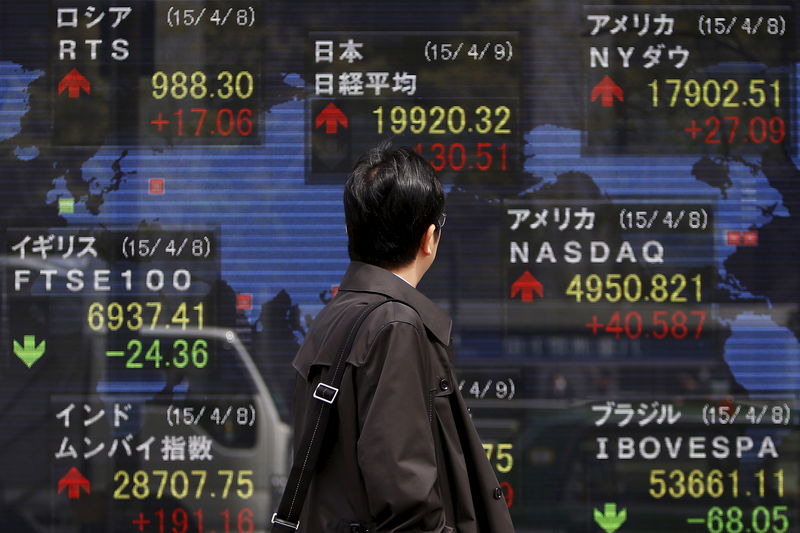By Gina Lee
Investing.com – Asia Pacific stocks were mostly up Wednesday morning as U.S. economic data disappointed amid concerns over inflation and jobs. U.S. Federal Reserve officials also insisted any inflation would be temporary but indicated that asset tapering could begin soon.
Japan’s Nikkei 225 was up 0.31% by 11:32 PM ET (3:32 AM GMT). Bank of Japan board member Hitoshi Suzuki said earlier in the day that the central bank should restrain its purchase of exchange-traded funds (ETF) during calm periods in the market to prevent its holdings from increasing as much as possible.
South Korea’s KOSPI inched down 0.02%, with the Bank of Korea due to hand down its policy decision on Thursday.
In Australia, the ASX 200 inched up 0.08%.
Hong Kong’s Hang Seng Index gained 0.67%. China’s Shanghai Composite was up 0.29% while the Shenzhen Component was down 0.33%.
Data released on Tuesday showed U.S. New Home Sales fell to 863,000 month-on-month in April, below the 970,000 figure in forecasts prepared by investing.com and March’s 917,000 reading. The CB Consumer Confidence for May also slid to 117.2, below both the Investing.com forecast and April’s reading.
Treasury yields fell below the peaks they reached in 2021 as more U.S. Federal Reserve officials insisted that price pressures would be transitory.
However, Fed Vice Chairman Richard Clarida on Tuesday said officials may be ready to start discussing the slowdown of asset purchases, echoing the recent minutes from the Fed’s latest meeting.
"It may well be...there will come a time in upcoming meetings we will be at the point where we can begin to discuss scaling back the pace of asset purchases… that was not the focus of the April meeting. It is going to depend on the flow of data," said Clarida.
He added that economic growth will continue as the Fed will be able to curb runaway inflation with tough talk and modest rate hikes.
“What we keep hearing from the Fed is that they’re going to take a very different approach to inflation this time around,” Kristina Hooper, Invesco chief global market strategist, told Bloomberg.
“The Fed is likely to let the punchbowl stay out a lot longer. The big fear about inflation is that the Fed would act.”
In Asia, Fed officials’ insistence on its current dovish monetary policy helped to boost sentiment.
"The messages were not necessarily new, but they reinforced the prevailing consensus still that the bulk of the surprise in April (CPI) can be traced to transitory elements," said Stefan Hofer, chief investment strategist at LGT in Hong Kong, told Reuters.
"The proof is in the pudding so to speak over the coming months, how much of the CPI increase is structural and how much of it is transitory. And the jury is I would say still out on that, but the Fed is sticking to its guns and markets seem to be by and large still comfortable with that."
Elsewhere on the central bank front, the Reserve Bank of New Zealand handed down its policy decision earlier in the day, keeping its interest rate unchanged at 0.25%.
